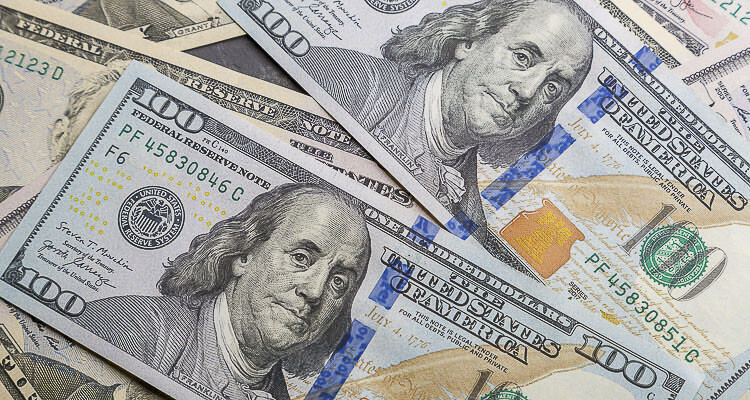
Washington residents must bring in more than $804,000 annually to be considered a top 1% earner in the state
Logan Washburn
The Center Square Washington
The top 1% of earners in Washington state make more than $800,000, the fifth-highest amount in America, according to a recent study.
Washington residents must bring in more than $804,000 annually to be considered a top 1% earner in the state, per the study by SmartAsset, a financial technology company based in New York City. In determining the concentration of wealth in American, SmartAsset looked at 2020 data from the Internal Revenue Service and Bureau of Labor Statistics, adjusted to May 2023 dollars.
Washington is home to some of the most moneyed people in the world, including Amazon founder Jeff Bezos and Microsoft co-founder Bill Gates, among others.
The state’s highest earners are taxed at an average rate of more than 25.9%, according to the study, partially because the state has no income tax.
The more money one earns, the more one stands to gain from avoiding higher taxes, according to Jaclyn DeJohn, SmartAsset’s managing editor of economic analysis.
“The lack of state income tax can act as an incentive for high earners to move to Washington, or to stay in it,” she said.
In March, the Washington State Supreme Court ruled the state’s controversial capital gains tax is constitutional. As of May, the new tax had brought in $849 million, far exceeding expectations.
DeJohn said the capital gains tax only applies to eligible and profitable asset sales.
“Capital gains tax won’t affect any income from salary, commissions or any earned wages,” she explained. “While in general, higher capital gains taxes may deter those with a lot of assets, there are ways to avoid capital gains taxes.”
DeJohn noted young high earners – those age 26 to 35 – are migrating to Washington, citing 2021 IRS data.
Americans on average need to make more than $652,000 to be considered among the top 1%, according to the study. These earners bring in more than eight times as much as the median household, which brings in close to $75,000.
The study found Northeastern states like Massachusetts, New Jersey and Connecticut have the highest thresholds for their top 1% of earners. Connecticut, which has the highest threshold of more than $952,000, taxes its top earners more than any other state at 28.4%.
But the study also found Southern states have the lowest thresholds for their top 1% of earners, as six of the 10 states with the lowest thresholds are in the Southeast. For example, West Virginia has the lowest threshold in the country at just more than $367,000. Arkansas also taxes its top earners less than any other state, at more than 21.1%.
This report was first published by The Center Square Washington.
Also read:
- Opinion: Revolution or revival?Nancy Churchill argues that Washington state is ground zero for a Marxist-style revolution but says a cultural revival is possible through personal responsibility and the America First movement.
- WA governor pressed to veto $1.8B piece of Democrats’ tax billGrocers and restaurateurs are urging Gov. Ferguson to veto a surcharge in HB 2081 that they say will raise food prices statewide.
- CCSO makes arrest in attempted kidnapping investigationA 31-year-old Vancouver man has been arrested in connection with an attempted kidnapping involving a teenage girl near NE 149th Street.
- Changing roles: Brian Witherspoon accepts position as head coach of Camas girls basketballBrian Witherspoon has been hired to lead the Camas girls basketball program after serving as interim boys coach last season.
- Vehicle crashes into Vancouver Fire Station 6 during emergency responseA vehicle crashed into Vancouver Fire Station 6 late Tuesday night while crews were out on an emergency call.
- Letter: ‘It’s said sarcasm is the lowest form of wit’Amboy resident Thomas Schenk criticizes Olympia’s use of “emergency clauses” and other legislative tactics that limit public participation.
- Letter: ‘We’re going to give them some money and a plane ticket, and then we’re going to work with them’Camas resident Anna Miller supports a new structured self-deportation policy, calling it a balanced approach to immigration and economic needs.











